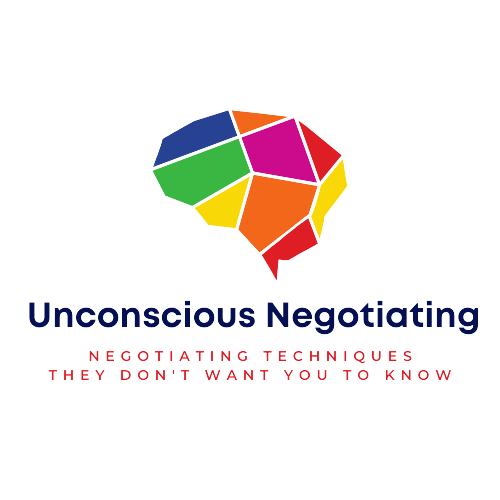The art of negotiation plays a crucial role in our day to-day living. Just imagine for a second – from buying a home, allocating budgets for various projects, to managing employee conflicts, competent negotiation skills can truly make a difference in the outcomes of these situations.
The relevance of negotiation stretches far beyond the professional realm and seeps into every aspect of our personal lives, whether we realize it or not. However, few take the time to develop this powerful skill, which holds the potential to enhance our lives.
In this post, we will explore the relevancy and importance of negotiation in professional and personal scenarios, aiming to shed light on why this skill is not just a business tool, but a life skill. Stay tuned as we uncover the real power of astute negotiation.
The Role of Negotiation in Everyday Interactions
Negotiation underpins every interaction in our daily lives, not just in business.
At work, we often negotiate with colleagues on tasks, project roles, and scheduling. It doesn’t end there; at home, we negotiate with family members about household chores or dinner choices.
In social circles, we negotiate with our friends on where or when to meet.
In essence, effective negotiation ensures mutual understanding and prevents conflicts.
When we compromise, we are negotiating; when we diplomatically express our preferences, we are negotiating.
It’s less about “winning” and more about ensuring everyone’s needs are met or at least acknowledged.
Today’s society is highly interconnected, and many decisions stem from negotiations on different levels.
Therefore, negotiation skills are key tools in navigating these interactions successfully and maintaining interpersonal harmony.
Negotiation in Professional Settings: A Focus
Negotiation plays an integral role in professional settings. The business landscape is rife with scenarios that necessitate robust negotiation capabilities.
Job interviews, sales pitches, contract discussions, or even intra-organizational meetings, all require some form of negotiation.
Mastering this art ensures you advocate for the best interest of either yourself, your team, or your organization. Moreover, it fosters relationships, builds mutual respect, and yields win-win outcomes.
A skilled negotiator can navigate challenging business waters with ease, turning potential conflicts into opportunities for collaboration.
Remember, success here isn’t about having an upper hand, but about creating value for all parties involved. This approach paves the way for long-term, productive relationships within the professional sphere.
In the world of business, the power of negotiation is undeniable; hence, honing these skills should be a priority.
Every deal is a negotiation, and every negotiation is a potential stepping stone towards more substantial success.
Negotiation Skills in Conflict Resolution
Negotiation skills play a pivotal role in conflict resolution. Whether it’s a disagreement amongst colleagues or a more significant corporate dilemma, skillful negotiation helps in finding a middle-ground solution that satisfies all.
Gaining these skills enables you to understand and empathize with opposing perspectives. It promotes open communication, building trust and fostering respect.
Negotiation is not about winning or losing. It’s about collaboration, compromise, and mutual understanding.
In a conflict situation, possessing strong negotiation skills prevents the situation from escalating, reduces stress and maintains relationships intact.
Remember, a well-negotiated resolution can earn you respect from others and improve your professional reputation. These are invaluable benefits that will follow you throughout your career and personal life.
How Negotiation Enhances Interpersonal Relationships
Negotiation plays an integral role in strengthening interpersonal relationships. This is especially true when conflicting interests surface. Through negotiating, individuals can create a conducive environment for understanding and mutual respect, paving the way for stronger connections.
Mastering negotiation skills aids us in navigating discussions and disagreements productively. It establishes a solid platform where open and respectful communication thrives. Both parties can voice out their perspectives, concerns, and suggestions, fostering empathy and tolerance.
Moreover, negotiation propels problem-solving and decision-making processes. It cultivates an ambiance of shared goals and cooperative efforts, in lieu of individualistic and competitive approaches, reducing potential friction and frustrations.
Ultimately, effective negotiation enhances interpersonal relationships, builds trust, and promotes peace and harmony in both our personal and professional lives.
Using Negotiation to Achieve Personal Goals
Negotiation isn’t just restricted to the boardroom. It’s a valuable life skill that can significantly impact your personal success.
Having solid negotiation skills can help you achieve your personal goals, whether you’re bargaining for a new car, negotiating your salary or simply trying to convince your toddler to eat his greens.
With negotiation, you can find a compromise that satisfies all parties involved, promoting mutual respect and understanding. It helps us assert our needs, understand others’ perspectives, cultivate better relationships and make informed decisions.
Negotiating with finesse can also boost your self-esteem, enabling you to stand your ground and voice your opinions confidently. Ultimately, it empowers you to take control of your life.
Remember, negotiation doesn’t have to be a contest of wills. Rather, it’s a tool for creating win-win situations, growing personally, and achieving our goals in the process.
Negotiation in Decision Making: Making Better Choices
Negotiation plays a crucial role in decision-making processes. In both professional and personal scenarios, negotiation can steer the course to better choices.
Whether it pertains to closing a business deal or opting for a lifestyle change, the skill to negotiate can make it more favourable. It aids in open dialogue, fostering the exchange of differing perspectives. More options surface, broadening our range for selection.
Essentially, it’s a balancing act. Acknowledging other people’s opinions whilst standing our ground, negotiating helps in compromise. This leads to more satisfactory decisions, cemented by mutual agreement.
Moreover, negotiation skill sharpens critical thinking. It pushes us to question, probe and evaluate before arriving at a decision. Hence, negotiation isn’t just about agreement, but proving to be a stepping-stone towards wiser, more informed choices in life.
Impact of Negotiation on Emotional Intelligence
Negotiation plays an essential role in boosting our Emotional Intelligence (EQ).
One reason is that successful negotiation relies on empathy, the ability to “step into another’s shoes” and comprehend their feelings. This fosters Emotional Intelligence by improving our understanding of the emotions and needs of others.
Negotiation also promotes self-awareness, another crucial aspect of EQ. In a negotiation, we have to understand our objectives, what we’re willing to compromise on, and where we stand firm.
We learn to maintain emotional control during negotiations too. Keeping emotions in check is key to avoiding heated arguments and reaching a productive resolution.
Ultimately, the intersection between Emotional Intelligence and negotiation is profound. As you improve your negotiation skills, your EQ expands, resulting in more effectiveness in personal and professional realms.
Improving Your Negotiation Skills: A How-To
Improving your negotiation skills is not just an art; it’s a necessity. A critical exam you face every day, in boardrooms, sales meetings, or even at your home dinner table. Rather than leaving things to chance, apply these steps.
First, prepare beforehand. Understand your counterpart’s needs and formulate your negotiation strategy. Practise articulating your points.
Next, always remain calm. Emotions can often lead to hasty decisions.
Thirdly, be a good listener. Often, understanding the other party’s perspective can help you reach a better agreement.
Lastly, think win-win. Negotiation is not a war to be won. It is a dance where both partners move together, toward a mutually beneficial solution.
Small improvements daily build massive skills over time. Start today.





0 Comments